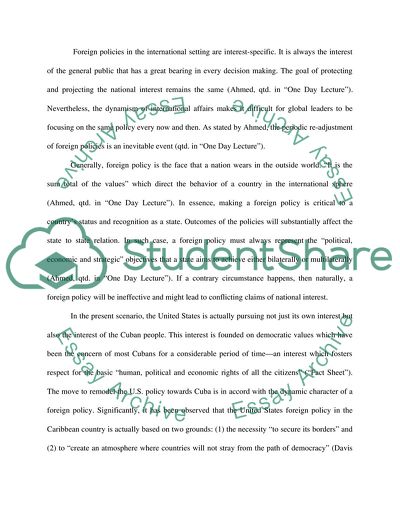Cite this document
(“United States Foreign Policy toward Cuba Research Paper”, n.d.)
United States Foreign Policy toward Cuba Research Paper. Retrieved from https://studentshare.org/politics/1739606-cuba-foreign-policy
United States Foreign Policy toward Cuba Research Paper. Retrieved from https://studentshare.org/politics/1739606-cuba-foreign-policy
(United States Foreign Policy Toward Cuba Research Paper)
United States Foreign Policy Toward Cuba Research Paper. https://studentshare.org/politics/1739606-cuba-foreign-policy.
United States Foreign Policy Toward Cuba Research Paper. https://studentshare.org/politics/1739606-cuba-foreign-policy.
“United States Foreign Policy Toward Cuba Research Paper”, n.d. https://studentshare.org/politics/1739606-cuba-foreign-policy.


